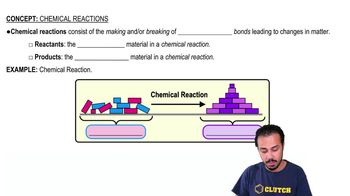Multiple Choice
Which of the following statements is NOT a possible outcome of an antigen-antibody reaction?
 Verified step by step guidance
Verified step by step guidance Verified video answer for a similar problem:
Verified video answer for a similar problem:



 9:16m
9:16mMaster Outcomes of Antibody Binding to Antigen with a bite sized video explanation from Bruce Bryan
Start learning